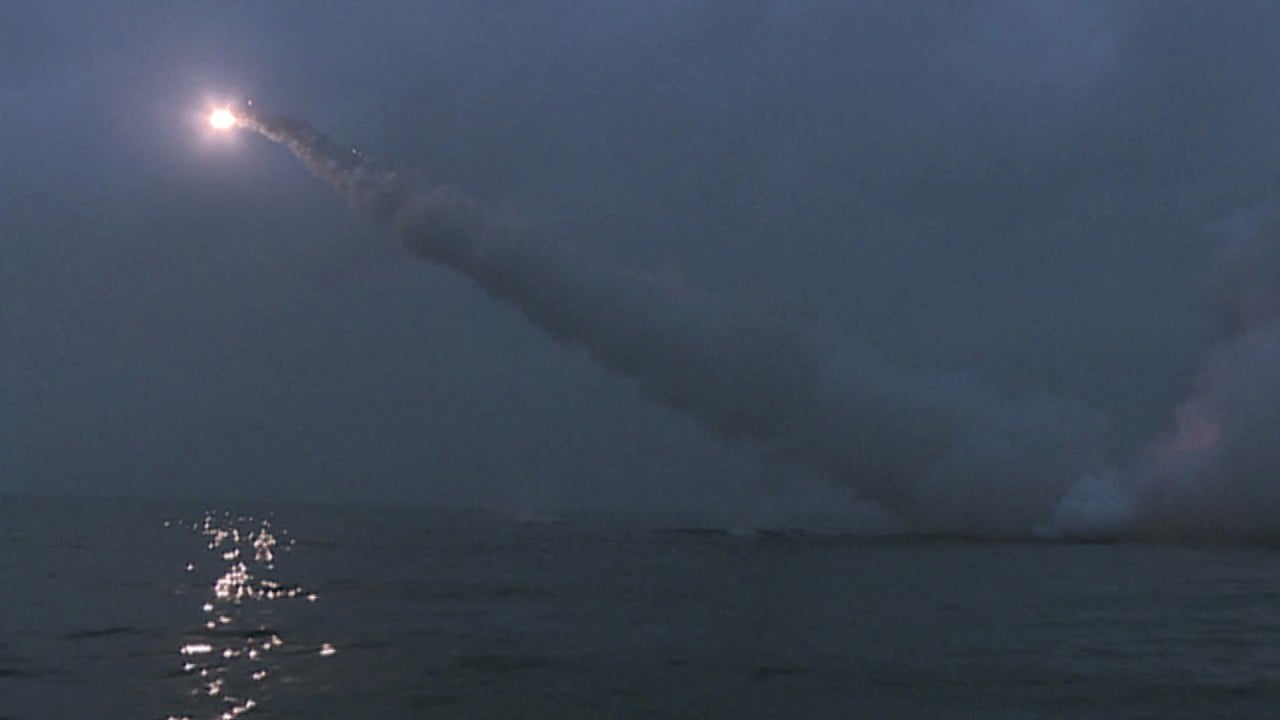
Security concerns drive Japan and South Korea to mend wartime rift, expand ties: analysts
- South Korean president’s trip to Japan will mark resumption of reciprocal visits after 12 years, following plan to resolve wartime labour dispute
- The US has been exerting pressure on both countries to move on from historical disputes to deal with regional security threats from North Korea, China
The administration of former South Korean president Moon Jae-in unilaterally scrapped a similar 2015 deal that at the time was described as concluding the row over wartime “comfort women” – the Korean women forced to serve in Japanese military brothels.
Still, President Yoon’s office said his trip to Tokyo on Thursday would mark the resumption of reciprocal visits between the leaders of the two nations, which have been suspended for 12 years, calling the travel an “important milestone” for improving bilateral ties.
The sense in Japan is that Yoon and Kishida are attempting to put the past behind the two countries primarily due to the deteriorating security situation in Northeast Asia.
“Security is the main driver for both sides as North Korea has been lobbing missiles at an unprecedented rate in the last 18 months and China poses another threat to stability in the region,” said Jeff Kingston, director of Asian studies at Temple University.
“But there has also been a lot of pressure behind the scenes from Washington, which really wants these two ‘frenemies’ to turn the page on history and get over something that they have been fighting about for 80 years so they can deal with problems they are facing here and now,” he told This Week in Asia. “The US wants its two most important security allies in the region to get over their tiffs from history in order to strengthen the three-way alliance.”
That ambition already appears to be bearing fruit, with the three governments planning to hold talks in Washington in mid-April to pave the way for a system to share real-time information about ballistic missile launches by North Korea.
The US presently shares such data with the two nations separately but the aim is to operate a quicker three-way system.
South Korea has also indicated it plans to normalise the General Security of Military Information Agreement, through which Seoul and Tokyo share more security information.
The agreement, set up in 2016, was cancelled by the Moon administration in 2019 as part of a series of tit-for-tat exchanges. Seoul called off the comfort women deal and allowed court cases brought by former forced labourers against Japanese corporations to go ahead. Tokyo responded by imposing restrictions on chemicals critical to South Korea’s microchip industry.
The conservative Yomiuri newspaper commended Yoon for resisting domestic pressure to reach the decision on compensation for the former forced labourers and said his visit “must be used as an opportunity to restore friendly ties between the neighbouring countries”.
The Mainichi said in an editorial that “cooperation is needed to build a new era”, and that the worsening regional security situation meant “the deterioration of … relations cannot be left unchecked”.

“Mutual respect and a willingness to understand each other are important to regain lost trust,” the paper said. “Japan and South Korea must exert all their efforts to rebuild their relationship as equal partners.”
Toshimitsu Shigemura, a professor of politics and international relations at Waseda University, said he anticipated Yoon calling for greater trade cooperation between the two countries in addition to a closer security arrangement.
“I also expect Yoon to ask Kishida to make a formal apology to the former forced labourers, but I do not expect that to be forthcoming,” he said.
“Japan’s position is that it has apologised clearly and on many occasions, so Kishida will repeat the apologies of previous administrations, which I think is appropriate. But that may, of course, cause problems for Yoon if he goes back to Seoul without a new apology.”

Still, the Japanese government was likely to “appreciate” Yoon’s efforts to put relations back on track, Shigemura said.
“Arguably the most significant move was when he spoke on March 1 to mark the anniversary of the Korean independence movement and said Japan has changed from a militaristic country to a partner to South Korea,” he said. “It was the first time a Korean leader had said anything like that since the end of World War II and it was warmly welcomed by Kishida.”
Yet fears that a future South Korean administration may go back on Yoon’s word remain a worry for Tokyo, Kingston pointed out.
“There is a sense of ‘been there, done that’ because of the 2015 comfort women deal – which was ‘finally settled’ only to unravel a couple of years later under Moon,” he said. “There is the concern that the same thing could happen to this deal down the line.”
Japan’s conservatives – including the right-wing of Kishida’s Liberal Democratic Party – also insist that he should not have welcomed Yoon’s compensation plan with such alacrity, with the Sankei newspaper stating in an editorial on March 8 that the plan was “a very regrettable development”.
By giving Japanese companies the choice of contributing to the scheme, it undermines former administrations’ position that the issue was settled under a 1965 treaty that normalised diplomatic relations and saw Tokyo pay US$500 million in compensation to Seoul.
“Failure to explain the situation adequately, and giving credit to a South Korean foundation for covering the costs of the compensation claims, would spread the mistaken impression that Japan’s mobilisation of labour was illegal and inhumane,” it concluded.


